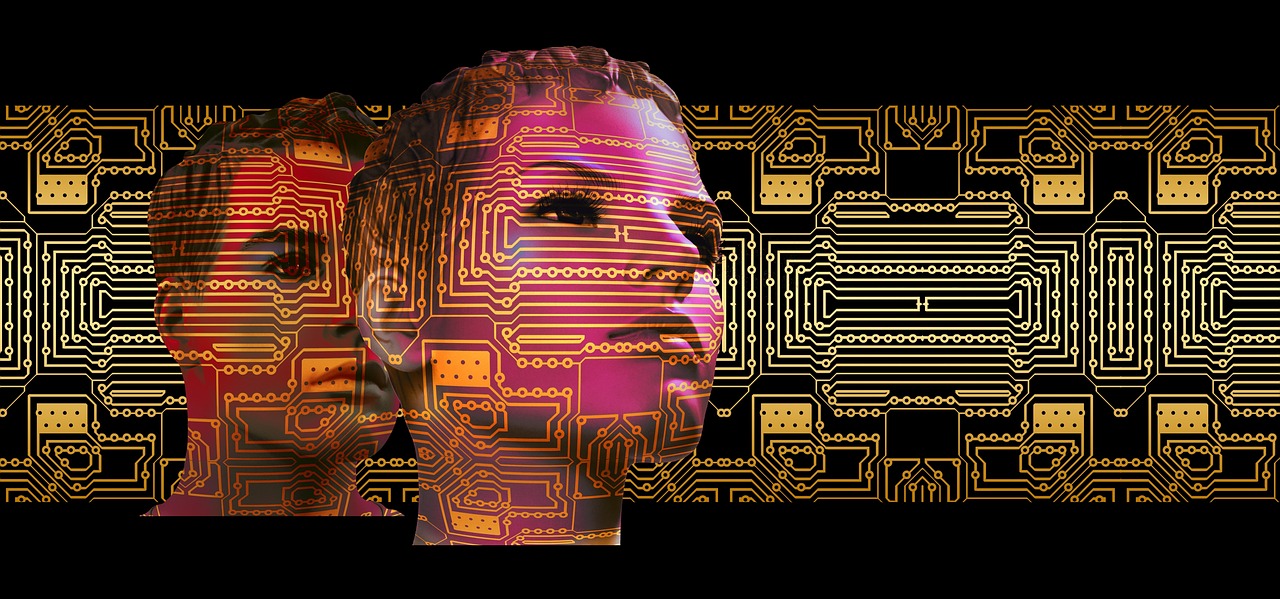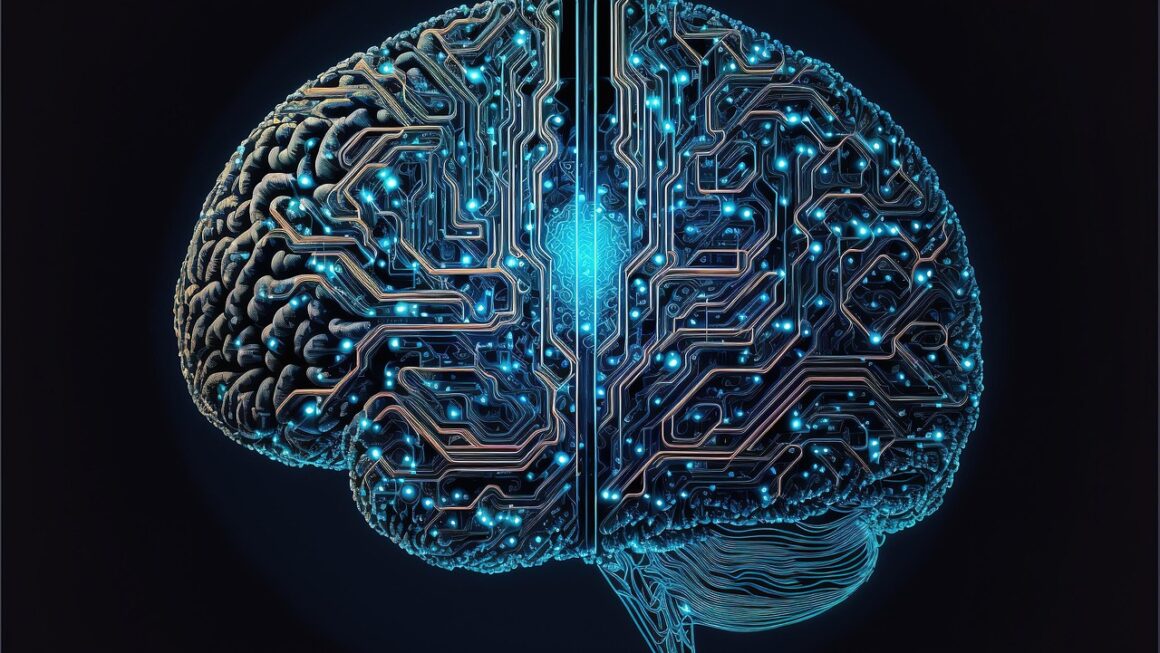AI is rapidly transforming our world, offering unprecedented opportunities for innovation and progress. However, with this power comes a responsibility to ensure that AI is developed and deployed ethically, fairly, and responsibly. Ignoring AI ethics could lead to biased outcomes, privacy violations, and even societal harm. Understanding and addressing these ethical considerations is paramount to harnessing the full potential of AI while mitigating its risks.
Understanding the Landscape of AI Ethics
What is AI Ethics?
AI ethics is a branch of applied ethics that concerns itself with the moral principles and values guiding the development, deployment, and use of artificial intelligence technologies. It aims to ensure that AI systems are aligned with human values, promote fairness, transparency, and accountability, and avoid causing harm. This field encompasses a broad range of considerations, including:
For more details, visit Wikipedia.
- Fairness and Bias: Ensuring that AI systems do not perpetuate or amplify existing societal biases, leading to discriminatory outcomes.
- Transparency and Explainability: Making AI decision-making processes understandable and interpretable, allowing for scrutiny and accountability.
- Privacy and Data Security: Protecting sensitive data used to train and operate AI systems, and respecting individual privacy rights.
- Autonomy and Responsibility: Defining the appropriate level of autonomy for AI systems and assigning responsibility for their actions.
- Human Oversight and Control: Maintaining human oversight and control over AI systems, preventing unintended consequences and ensuring alignment with human values.
Why is AI Ethics Important?
The importance of AI ethics cannot be overstated. AI systems are increasingly used in critical applications, such as:
- Healthcare: Diagnosing diseases, personalizing treatment plans.
- Finance: Evaluating loan applications, detecting fraud.
- Criminal Justice: Predicting recidivism, identifying suspects.
- Education: Personalizing learning experiences, grading assignments.
If these systems are biased or unreliable, they can have severe consequences for individuals and society as a whole. For example, a biased AI hiring tool could discriminate against qualified candidates, perpetuating inequality. A poorly designed autonomous vehicle could cause accidents and injuries. A lack of transparency in AI decision-making can erode trust and undermine democratic values.
Furthermore, as AI systems become more sophisticated and pervasive, the ethical challenges become more complex. We need to address these challenges proactively to ensure that AI benefits all of humanity and contributes to a more just and equitable world.
Key Ethical Challenges in AI
Bias and Discrimination
AI systems learn from data, and if that data reflects existing societal biases, the AI system will likely perpetuate and even amplify those biases. This can lead to discriminatory outcomes in areas such as:
- Hiring: AI-powered recruitment tools have been shown to exhibit gender and racial bias, unfairly disadvantaging certain groups of candidates.
- Lending: AI-based credit scoring algorithms may discriminate against individuals from low-income communities or minority groups, denying them access to financial services.
- Criminal Justice: Predictive policing algorithms have been criticized for disproportionately targeting certain neighborhoods, leading to over-policing and racial profiling.
- Practical Example: Amazon scrapped its AI recruiting tool in 2018 after discovering that it was biased against women. The tool was trained on historical data of job applications, which primarily came from men, leading the AI to penalize applications that contained the word “women’s” or mentioned women’s colleges.
Lack of Transparency and Explainability
Many AI systems, particularly those based on deep learning, are “black boxes,” meaning that their decision-making processes are opaque and difficult to understand. This lack of transparency can make it difficult to:
- Identify and correct biases: If we don’t know how an AI system is making decisions, it’s hard to identify and address the underlying biases that may be driving those decisions.
- Hold AI systems accountable: If we can’t explain why an AI system made a particular decision, it’s difficult to hold it accountable for its actions.
- Build trust in AI systems: People are less likely to trust AI systems if they don’t understand how they work.
- Practical Example: Consider an AI system used to diagnose medical conditions. If the system recommends a particular treatment without explaining the reasoning behind its recommendation, doctors may be hesitant to trust it, potentially delaying or hindering patient care. Explainable AI (XAI) is an area of research dedicated to making AI systems more transparent and understandable.
Privacy and Data Security
AI systems often rely on large amounts of data, including sensitive personal information. This raises concerns about:
- Data privacy: How is personal data collected, stored, and used? Are individuals given sufficient control over their data?
- Data security: How is data protected from unauthorized access, theft, or misuse?
- Data breaches: What happens if personal data is compromised in a data breach?
- Practical Example: Facial recognition technology raises serious privacy concerns. When used in public spaces, it can track individuals without their consent, potentially chilling freedom of expression and assembly. Furthermore, facial recognition databases are vulnerable to hacking and misuse, potentially exposing sensitive personal information to malicious actors.
Autonomous Weapons Systems (AWS)
Autonomous weapons systems, also known as “killer robots,” are AI-powered weapons that can select and engage targets without human intervention. The development and deployment of AWS raise profound ethical concerns, including:
- Accountability: Who is responsible when an AWS makes a mistake and kills or injures a civilian?
- Human control: Should machines be allowed to make life-or-death decisions?
- Escalation: Could the use of AWS lead to an arms race and increased global instability?
- Practical Example: Many organizations and individuals are calling for a ban on the development and deployment of AWS, arguing that they pose an unacceptable threat to human security and violate fundamental ethical principles.
Addressing AI Ethics: A Multi-Stakeholder Approach
Addressing the ethical challenges of AI requires a multi-stakeholder approach involving:
Developers and Researchers
- Develop ethical guidelines and best practices: Organizations like the IEEE and the Partnership on AI have developed ethical guidelines and best practices for AI development.
- Promote transparency and explainability: Researchers are working on techniques to make AI systems more transparent and understandable.
- Address bias in data and algorithms: Developers should be aware of the potential for bias in their data and algorithms and take steps to mitigate it.
- Prioritize privacy and security: Developers should design AI systems with privacy and security in mind, using techniques like differential privacy and federated learning.
Policymakers and Regulators
- Develop regulations and standards: Governments should develop regulations and standards to ensure that AI systems are developed and deployed ethically and responsibly. The EU AI Act is a prime example of this proactive approach.
- Promote transparency and accountability: Policymakers should require AI systems to be transparent and accountable, and establish mechanisms for redress when things go wrong.
- Fund research into AI ethics: Governments should fund research into AI ethics to better understand the ethical challenges of AI and develop solutions.
Businesses and Organizations
- Establish ethics boards and committees: Organizations should establish ethics boards and committees to oversee the development and deployment of AI systems.
- Conduct ethical impact assessments: Organizations should conduct ethical impact assessments before deploying AI systems to identify and mitigate potential risks.
- Train employees on AI ethics: Organizations should train their employees on AI ethics to ensure that they are aware of the ethical considerations of AI and can make responsible decisions.
- Engage with stakeholders: Organizations should engage with stakeholders, including the public, to get their feedback on AI development and deployment.
Individuals and the Public
- Educate yourself about AI ethics: Individuals should educate themselves about AI ethics to understand the ethical challenges of AI and make informed decisions about its use.
- Demand transparency and accountability: Individuals should demand transparency and accountability from AI developers and policymakers.
- Participate in public discussions about AI ethics: Individuals should participate in public discussions about AI ethics to help shape the future of AI.
Implementing AI Ethics in Practice: Practical Tips
- Data Audits: Regularly audit your training data for biases and inaccuracies.
- Algorithm Testing: Rigorously test your AI algorithms for fairness and unintended consequences.
- Explainability Techniques: Employ explainable AI (XAI) techniques to understand and interpret AI decisions.
- Privacy-Preserving Technologies: Utilize privacy-preserving technologies like differential privacy and federated learning.
- Human Oversight: Maintain human oversight and control over AI systems, especially in critical applications.
- Stakeholder Engagement: Engage with stakeholders, including experts, ethicists, and the public, to gather feedback and address concerns.
- Ethical Codes of Conduct: Develop and adhere to ethical codes of conduct for AI development and deployment.
Conclusion
AI ethics is not just a theoretical exercise; it’s a crucial imperative for shaping the future of technology and society. By addressing the ethical challenges of AI proactively and implementing responsible practices, we can harness the immense potential of AI while mitigating its risks. A multi-stakeholder approach involving developers, policymakers, businesses, and individuals is essential to ensuring that AI benefits all of humanity and contributes to a more just, equitable, and sustainable world. Ignoring these ethical considerations would be at our peril. The time to act on AI ethics is now.
Read our previous article: Beyond Bitcoin: Altcoin Innovation Fueling Cryptos Future




